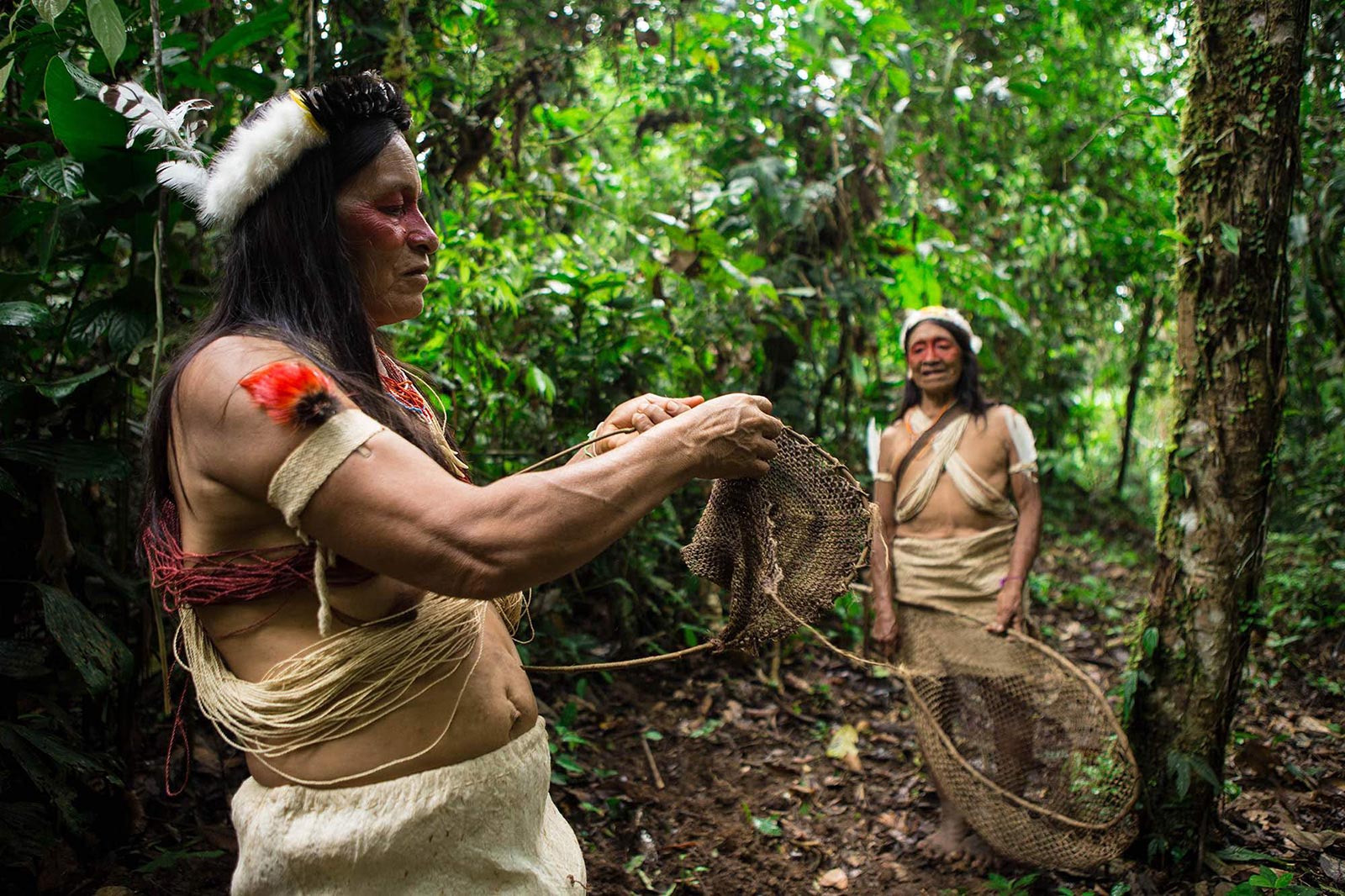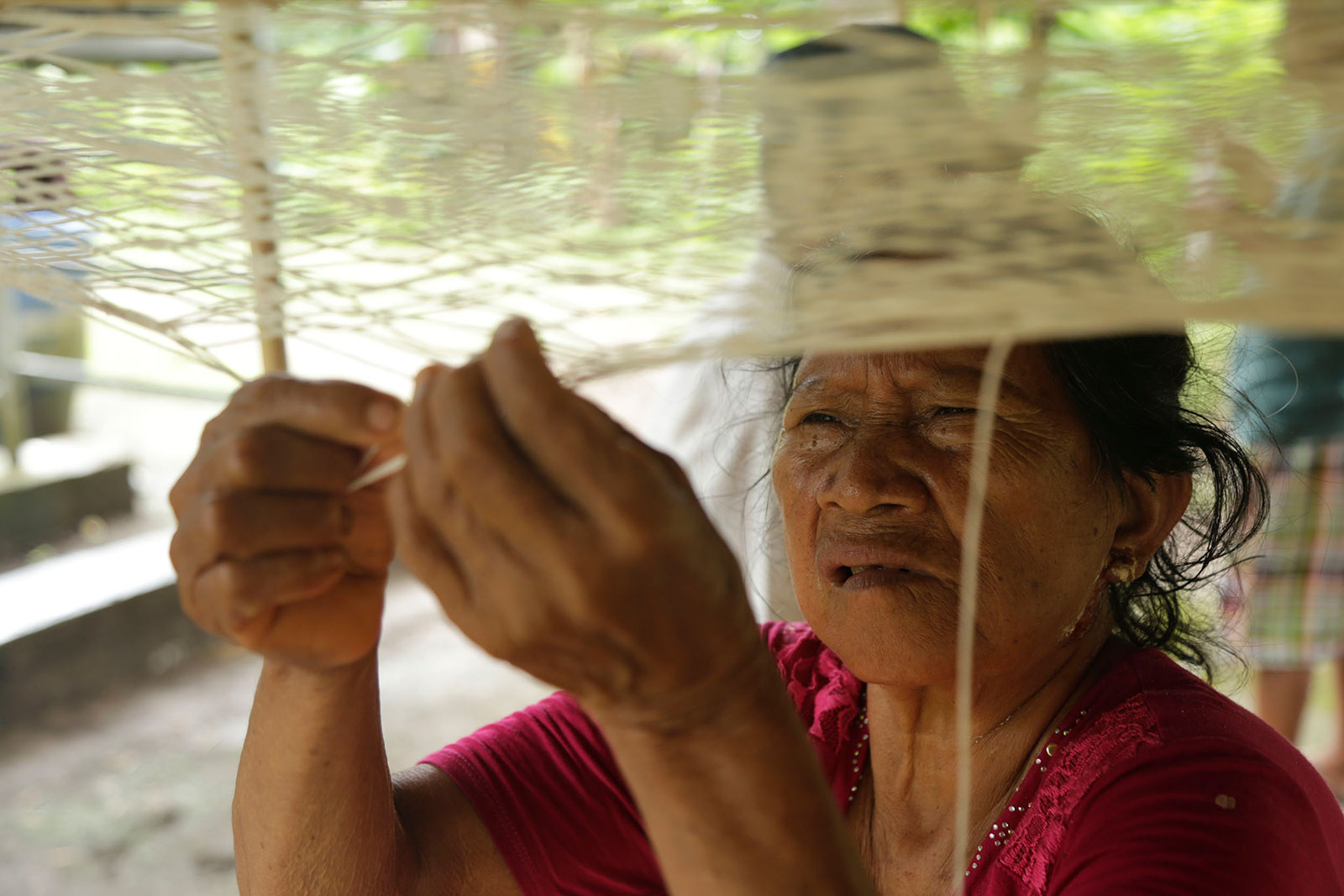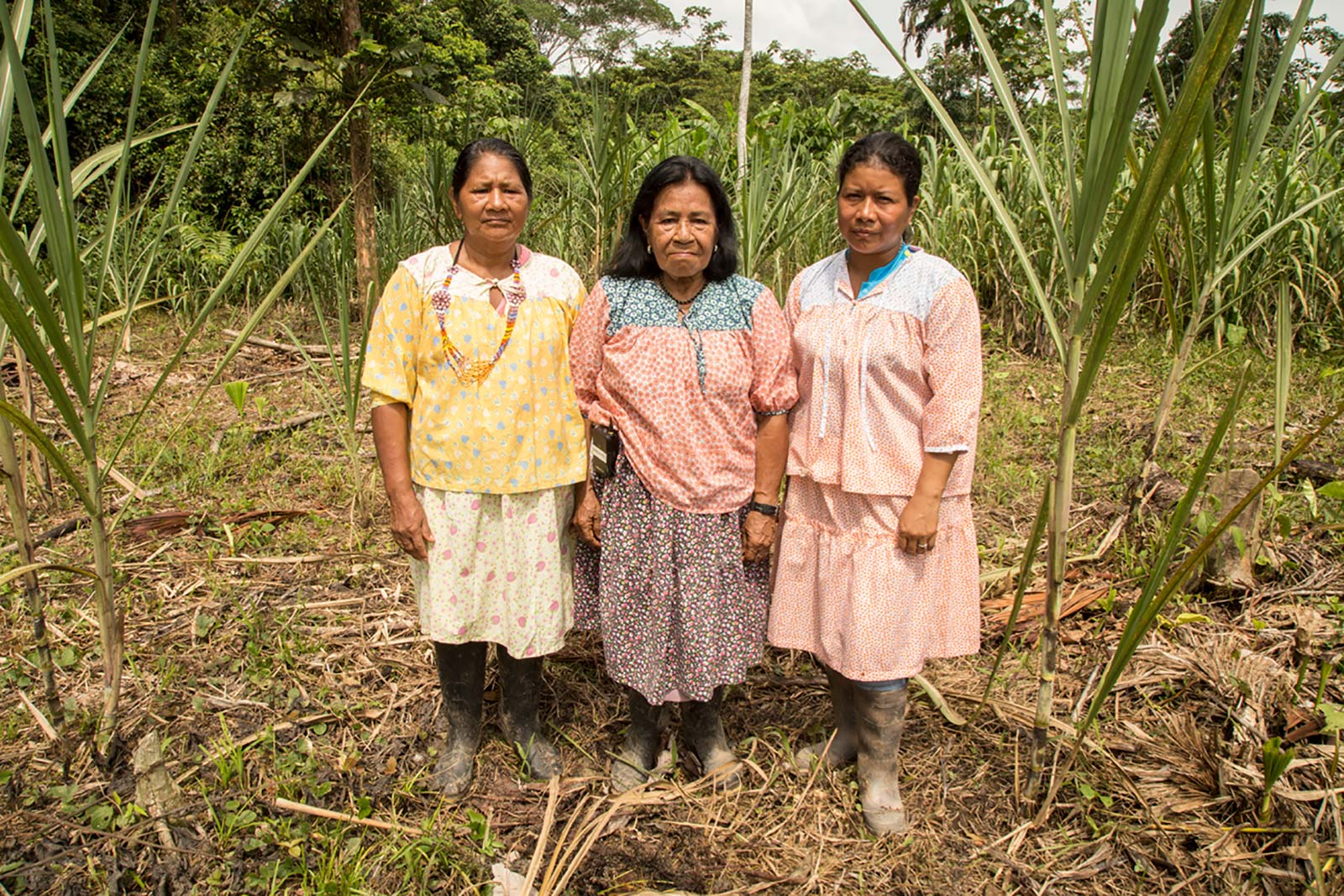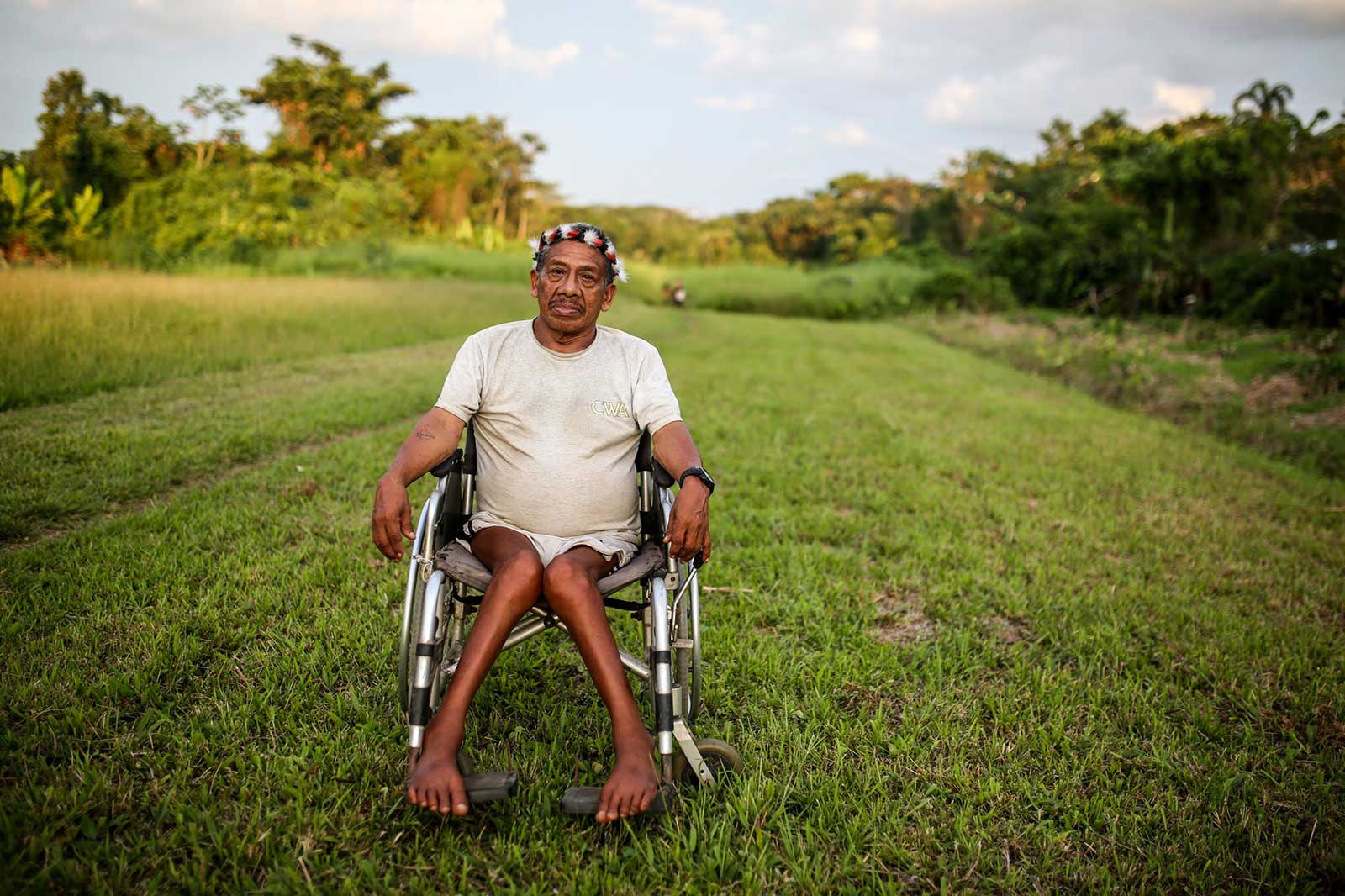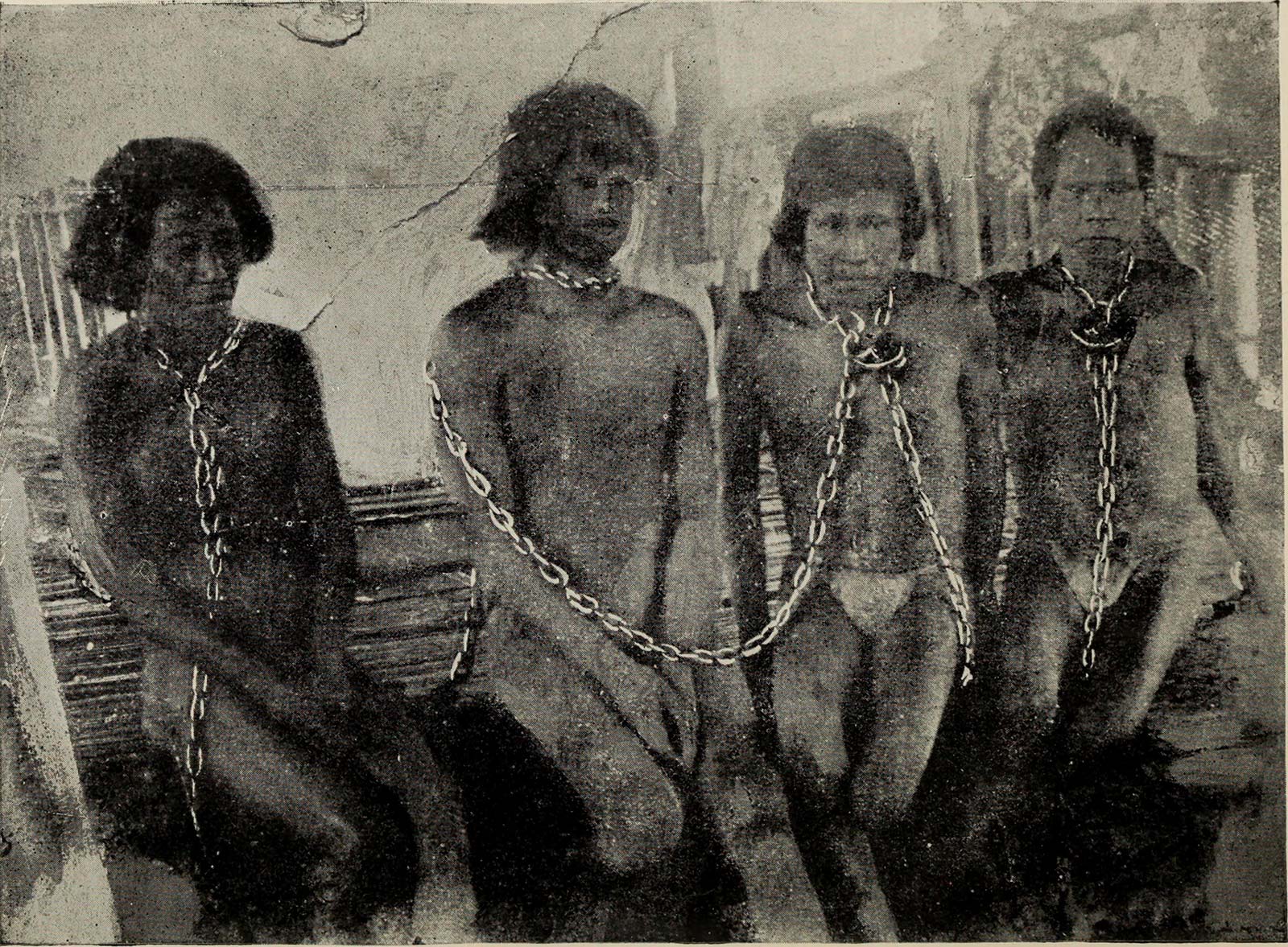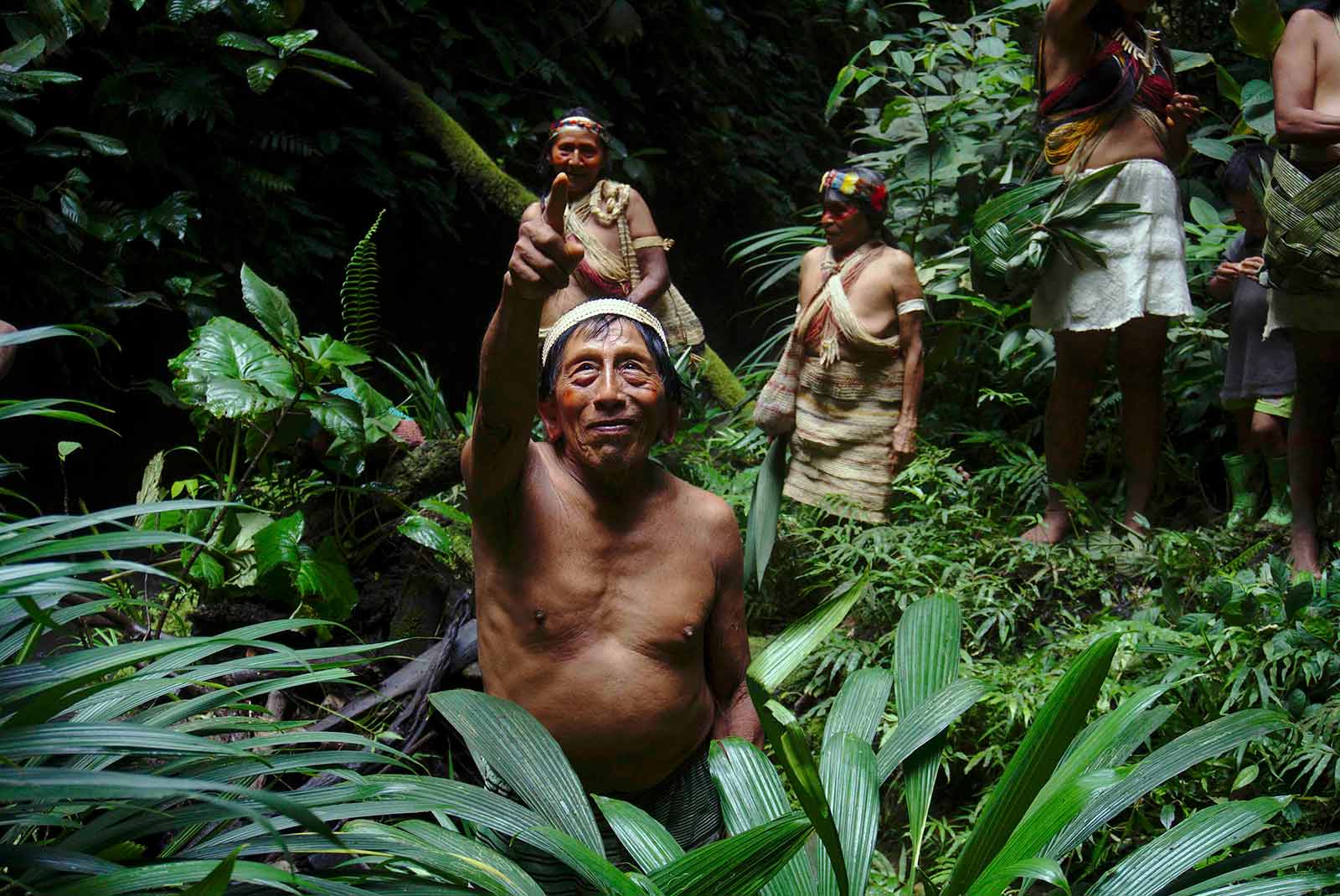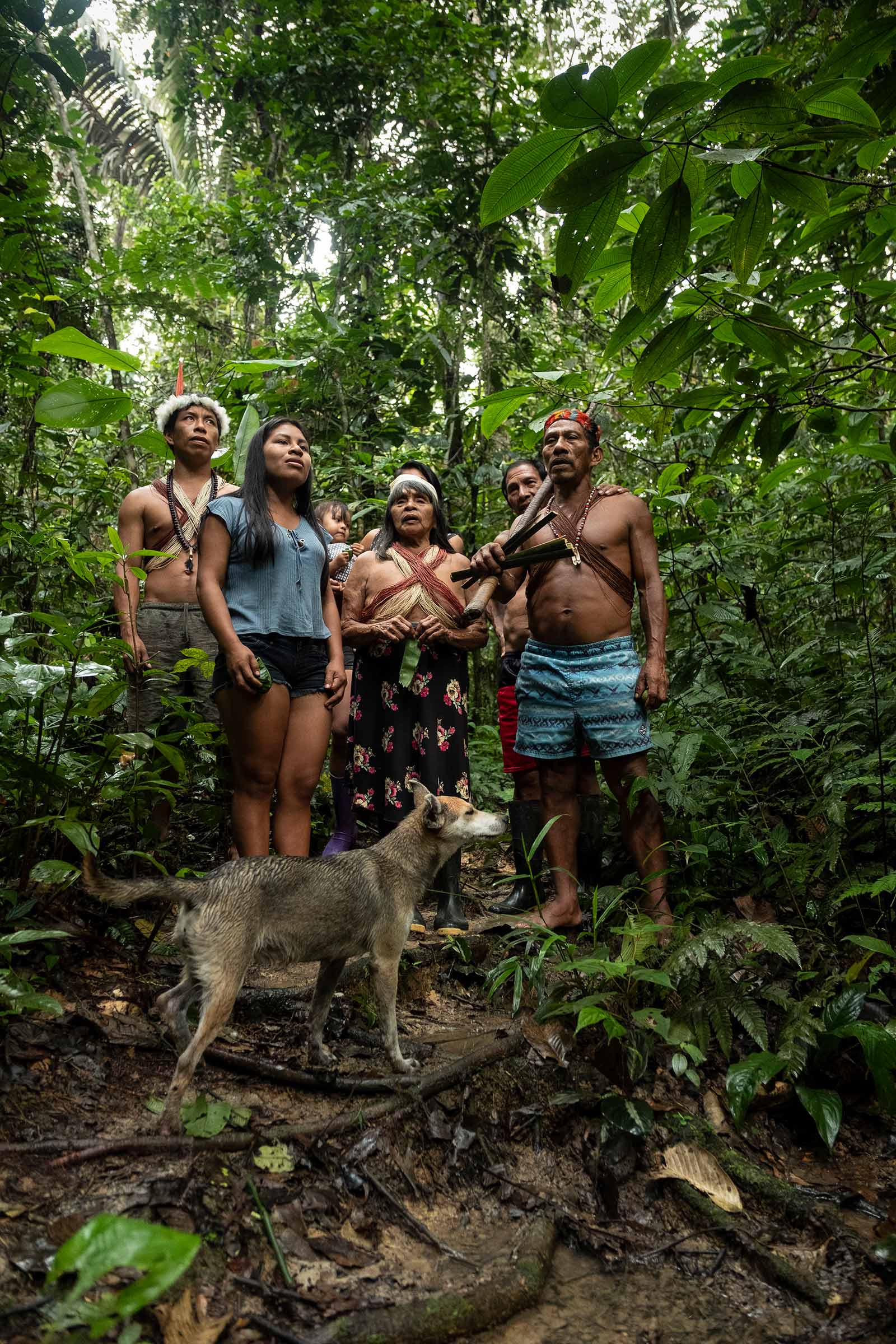As Latin America hurtles toward its coronavirus peak, Amazonian indigenous peoples are warning that the untimely loss of their elders threatens their existence and cultures like never before. As if unrestrained resource extraction, colonization and globalization hadn’t generated a great enough crisis, the rapid propagation of COVID-19 into Amazonian indigenous territories now risks annihilating the last generation of community elders, the pillars of their cultures and guardians of ancestral wisdom.
In the absence of adequate government support and aid, indigenous nations in the Ecuadorian Amazon have been working tirelessly to self-organize and protect the health of their elders who are among their most vulnerable demographic. Tragically, at least four elders from the Waorani and Siekopai nations have already succumbed to the novel coronavirus over the past two months. Indigenous nations have repeatedly denounced government inaction and even filed a lawsuit to press for immediate measures to protect their peoples. Many global allies and institutions including the United Nations and Inter-American Commission on Human Rights are advocating for an urgent response and amplifying the indigenous movement’s just demands.
In the face of COVID-19, indigenous peoples fear a repeat of history. As Latin America underwent colonization, thousands of cultures were wiped out within the first century of contact, decimating an estimated 90% of the continent’s indigenous population. Yet the survival of hundreds of indigenous nations into the 21st century is also a stark testament to the spirit of resistance and resilience among Amazonian grandmothers and grandfathers, who have fought seemingly insurmountable odds, against wave upon wave of invasions and threats, from foreign diseases to rubber tappers and oil companies.
This photo-essay is a homage to these Amazonian elders, to whom we also owe our gratitude as a global community, and from whom we still have much to learn today. Thanks to their tireless struggle and knowledge, our world’s most important rainforest is still standing and sustaining life on our planet.
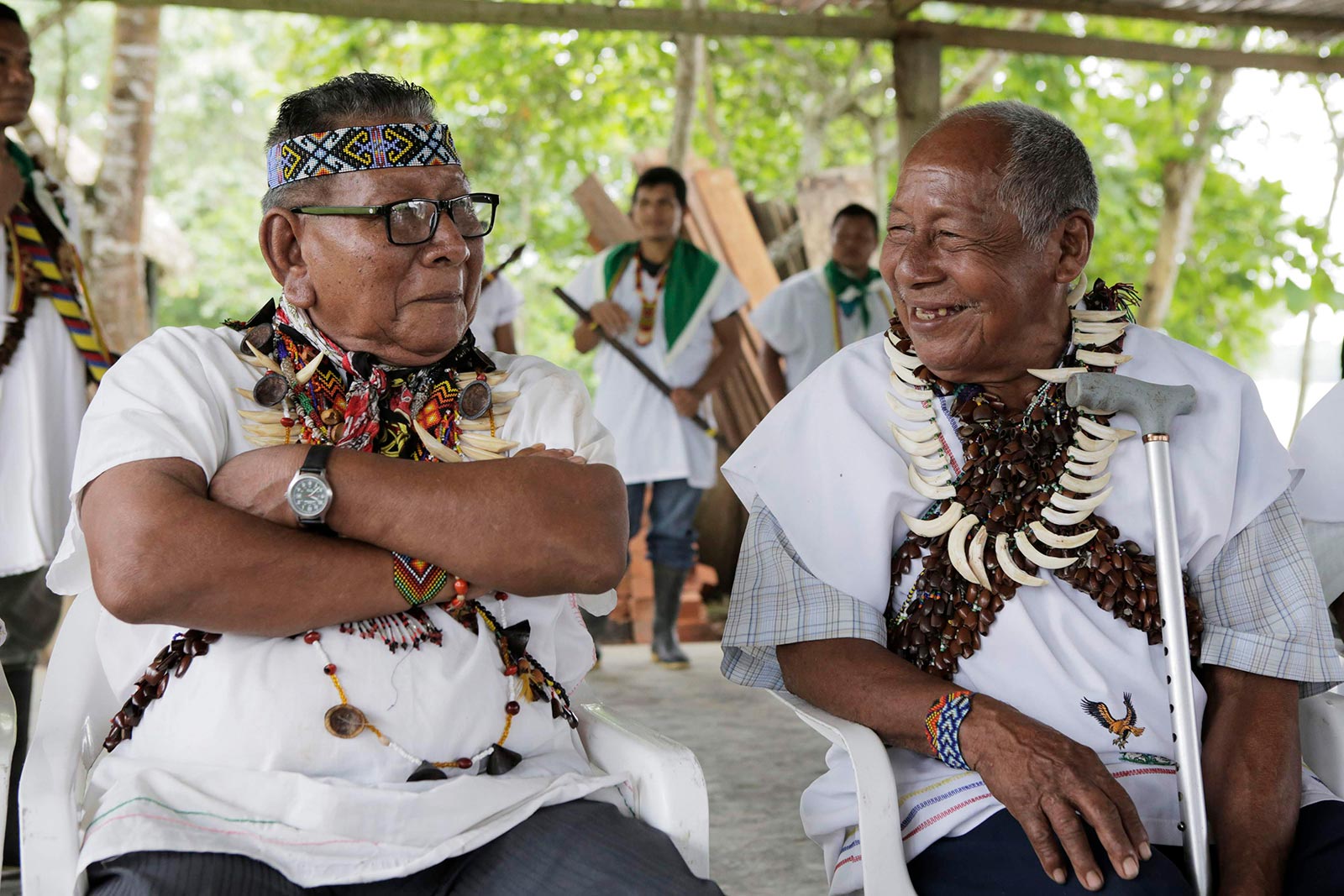
Members of the Siona Elders council sit front and center in a community assembly to offer words of wisdom and guidance on a wide array of village issues. On this day, critical political and legal decisions were to be made to confront the illegitimate oil industry activity in their territory
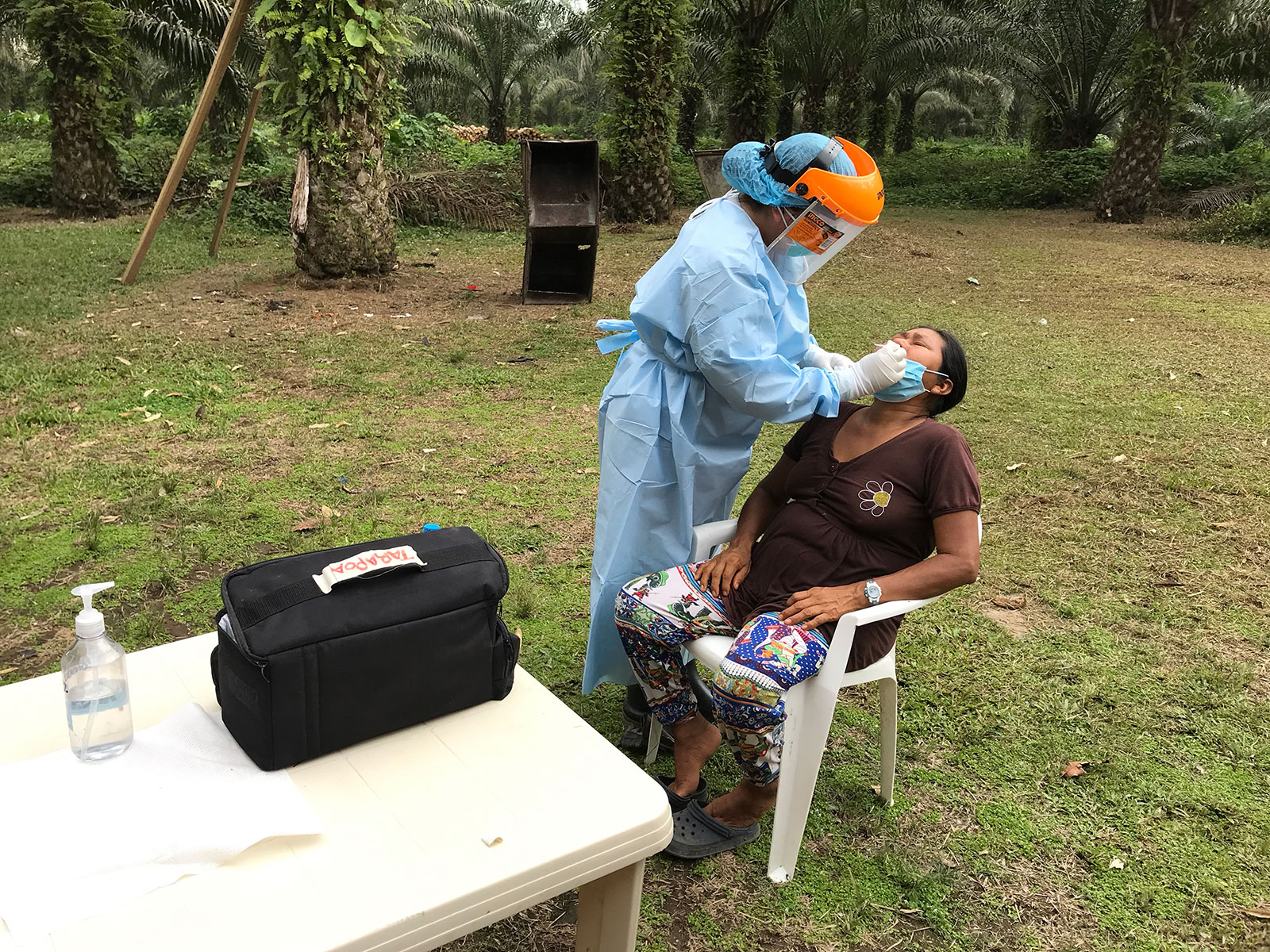
An elder Siekopai woman is tested for COVID-19 in the community of San Pablo, ancestral Siekopai territory, Sucumbios region, Ecuadorian Amazon, April 27th 2020
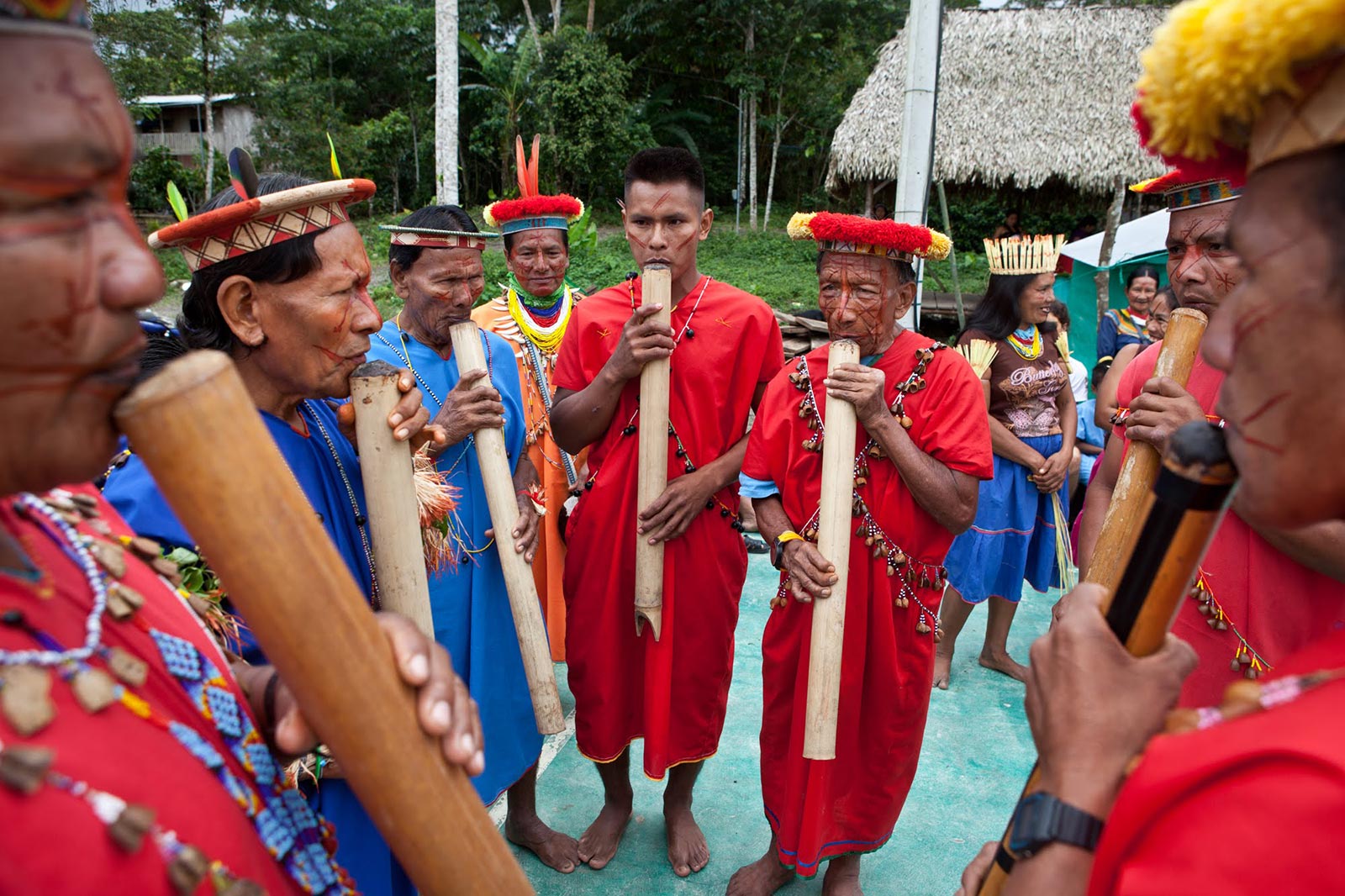
Traditional bamboo flute music is played at an annual cultural festival in memory of Siekopai ancestors lost to war and epidemics at the onset of Spanish colonization
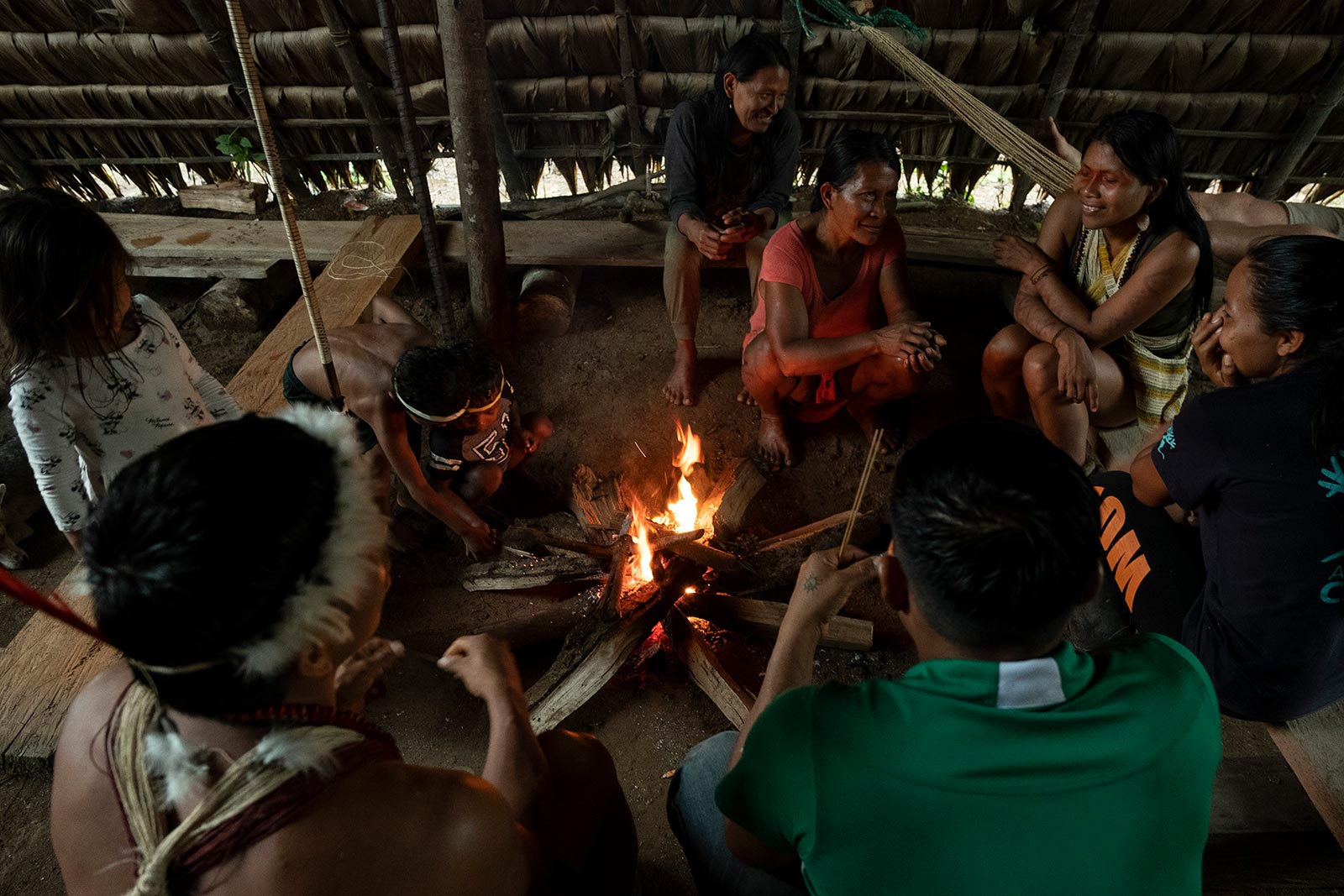
Alongside the comfort of a fire in her traditional long house, Waorani elder Manuela continues a millennia-old legacy of oral tradition, as she shares the origin myth of how their people first learned to twine forest fibers into complex weavings
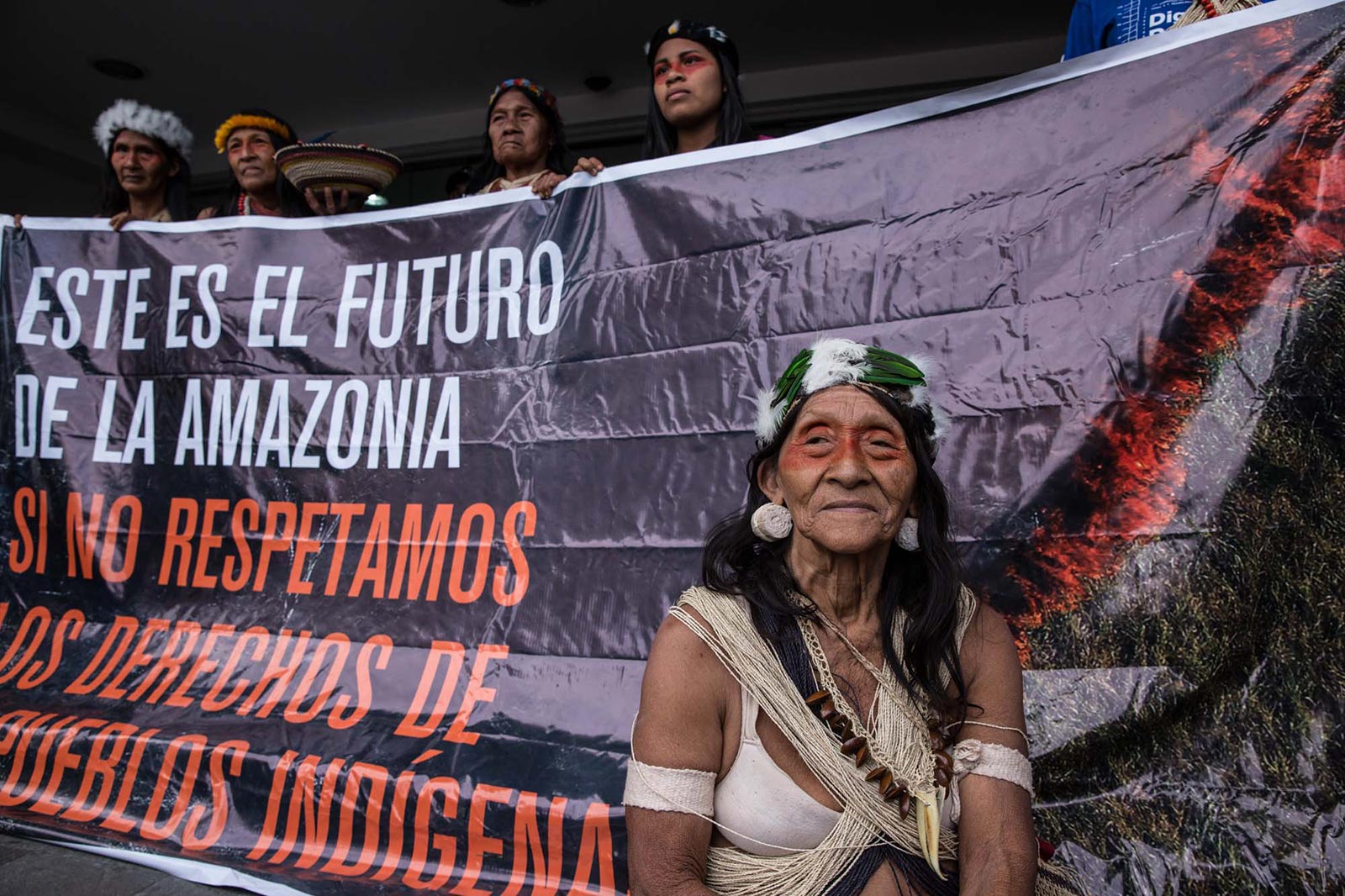
Waorani elders and traditional leaders, known in their language as Pekinani, provide untiring leadership, spirit, and song during the Waorani’s legendary lawsuit and victory against the Ecuadorian government in 2019, protecting a half-million acres of their rainforest territory from destructive oil drilling
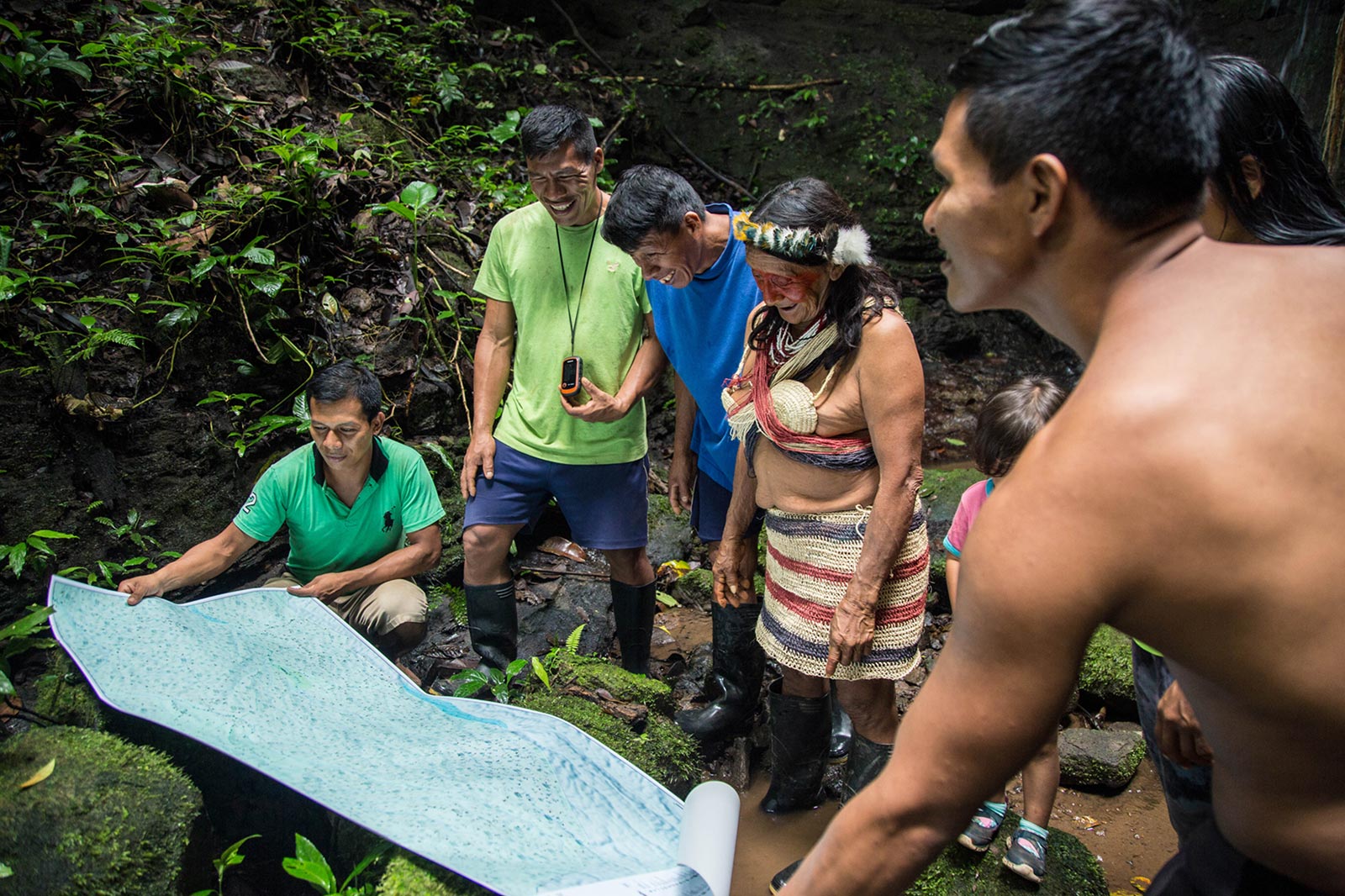
As Waorani youth train themselves in technological devices such as GPS, video cameras, and computer programs for the mapping of their ancestral territory, it is the elders who provide information about the ecological interconnectedness of the plants, animals and rivers
– Waorani leader Nemonte Nenquimo
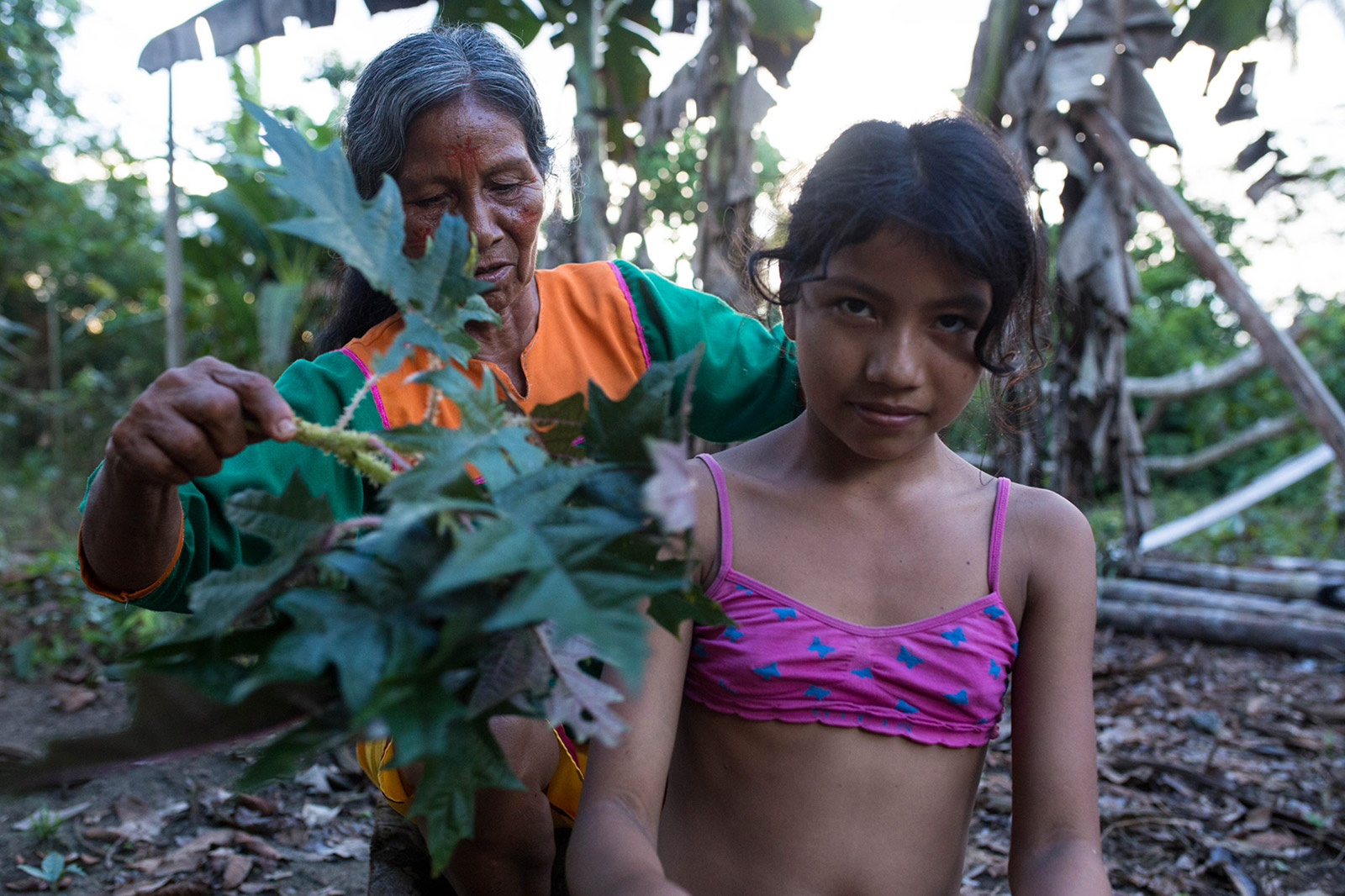
A great grandmother of the Siona people brushes stinging nettle across the back and arms of a young girl to take away lethargy and promote strength, agility and vigor – all essential traits for a physically demanding life in the rainforest. This ancient tradition of plant use includes thousands of species and employs mysteriously attained formulas and preparation methods, of which little has even begun to be understood or documented
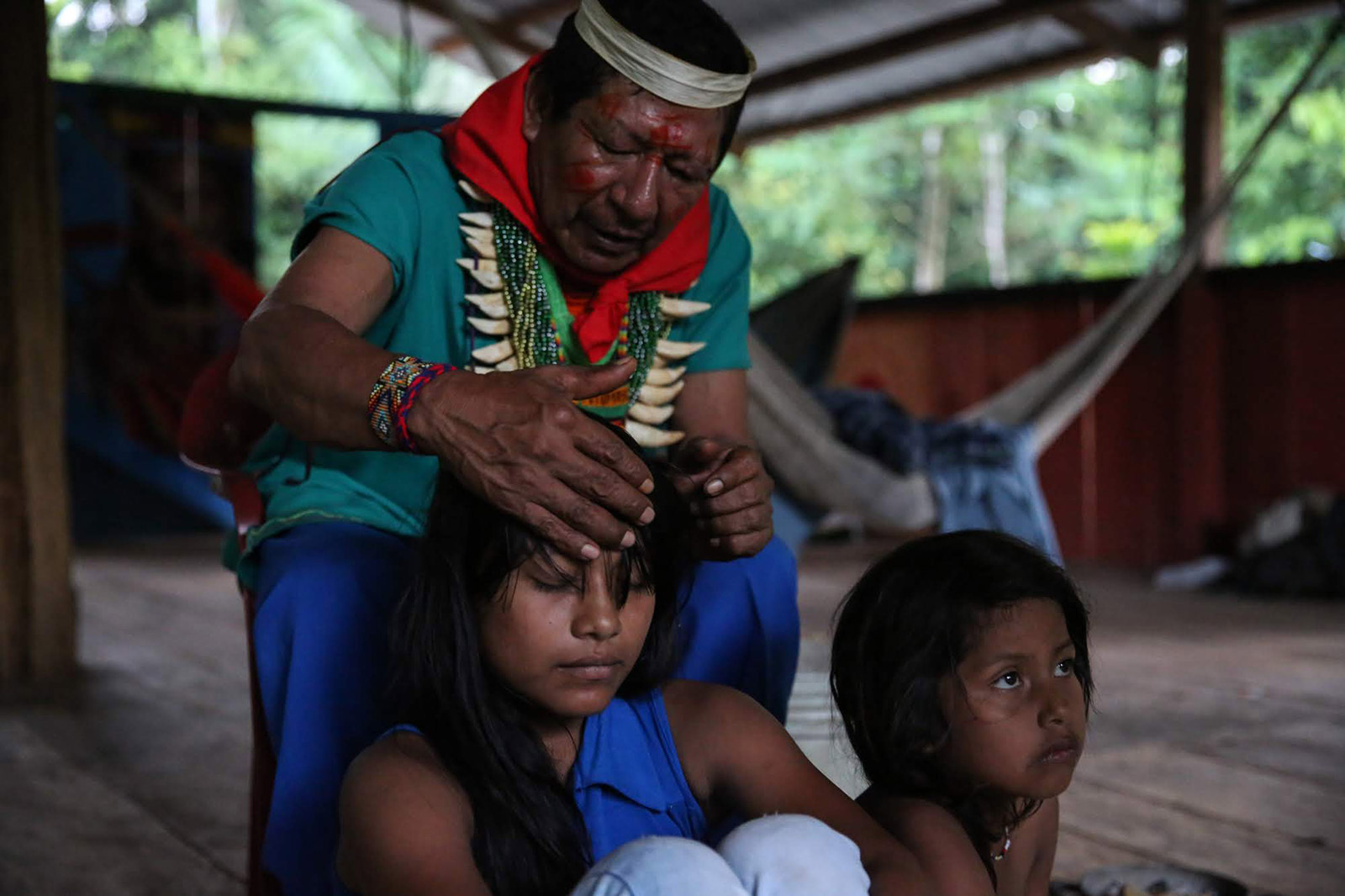
Amazonian peoples have refined a system of healing employing plants and shamanic abilities to prevent and cure a multitude of physical and psychological illness and malaise. It is the elders who have dedicated decades to learning this indigenous science and carry out the majority of the healings in their villages
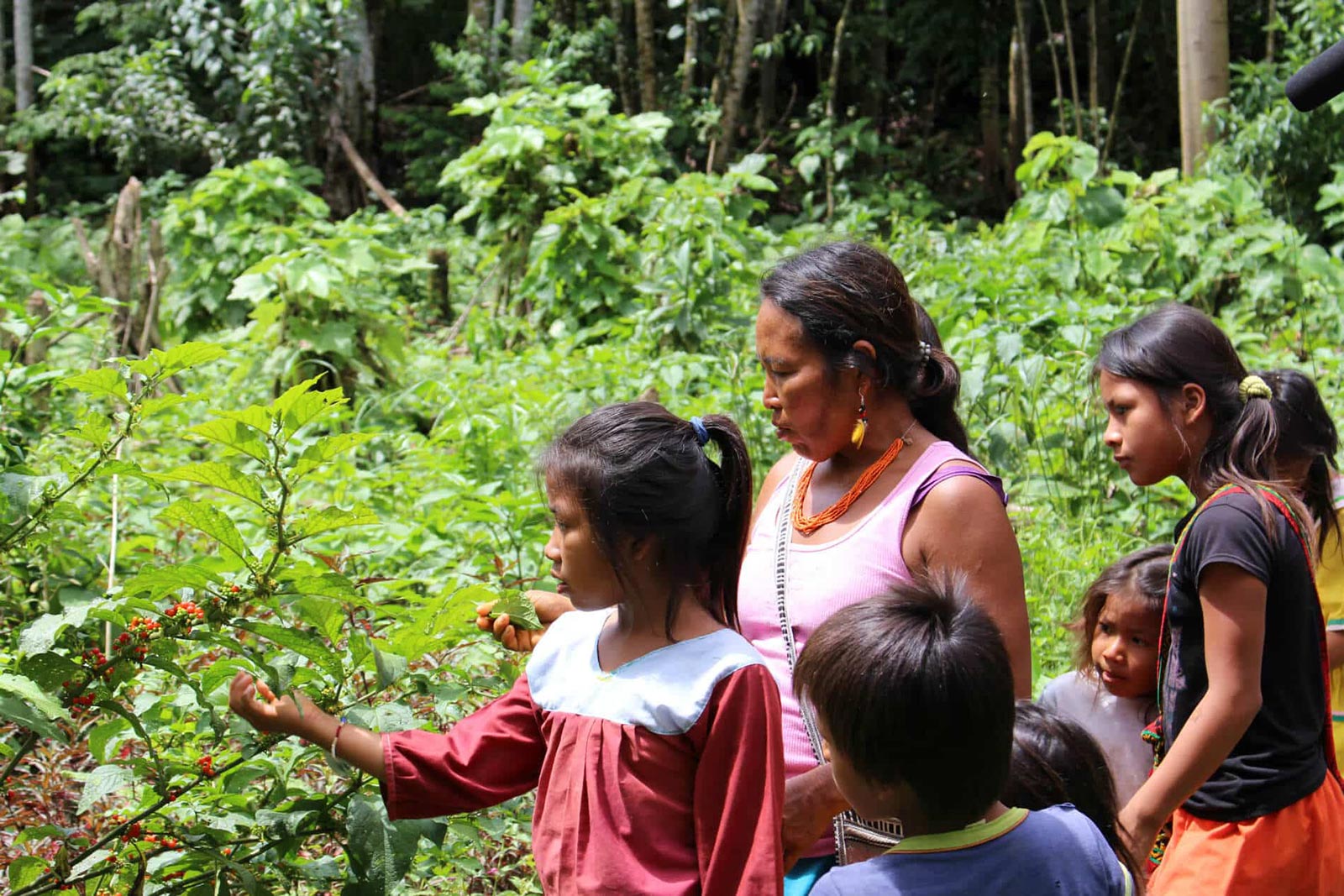
Fanny, a Siekopai grandmother, guides school children through her carefully tended medicinal plant garden. Plant by plant she teaches names, uses, and preparations, and does so using an ancient technique of employing stories of vivid humor and horror to promote memorization
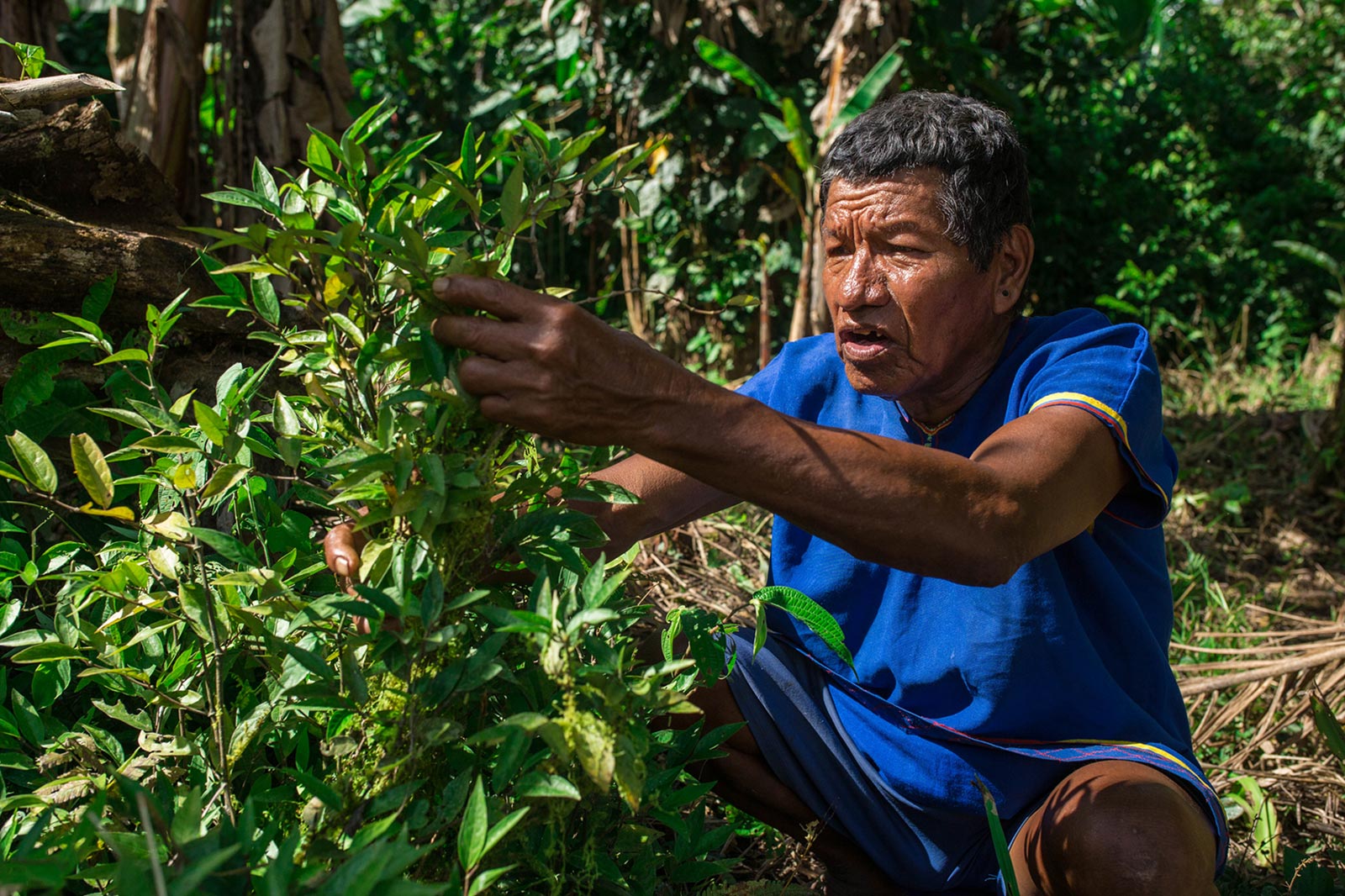
Siona elder with the Ñumi plant, used to “capture” the healing chants of shamans during ayahuasca ceremonies
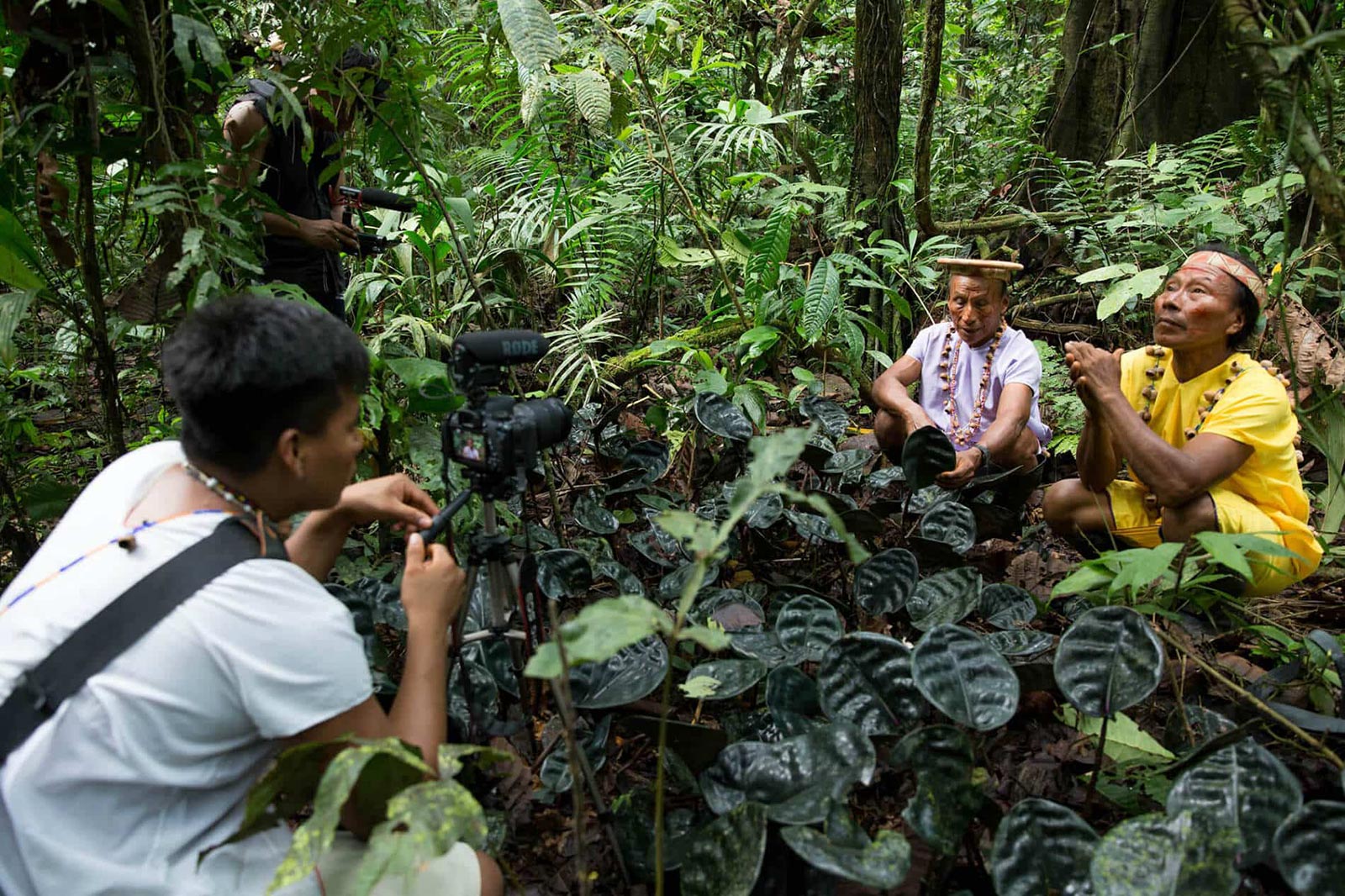
With the imminent threat of losing thousands of years of accumulated plant-use knowledge, Siekopai (Secoya) elder and youth are inspired to corroborate in preserving their heritage with detailed documentary films
– Siekopai youth filmmaker Jimmy Piaguaje
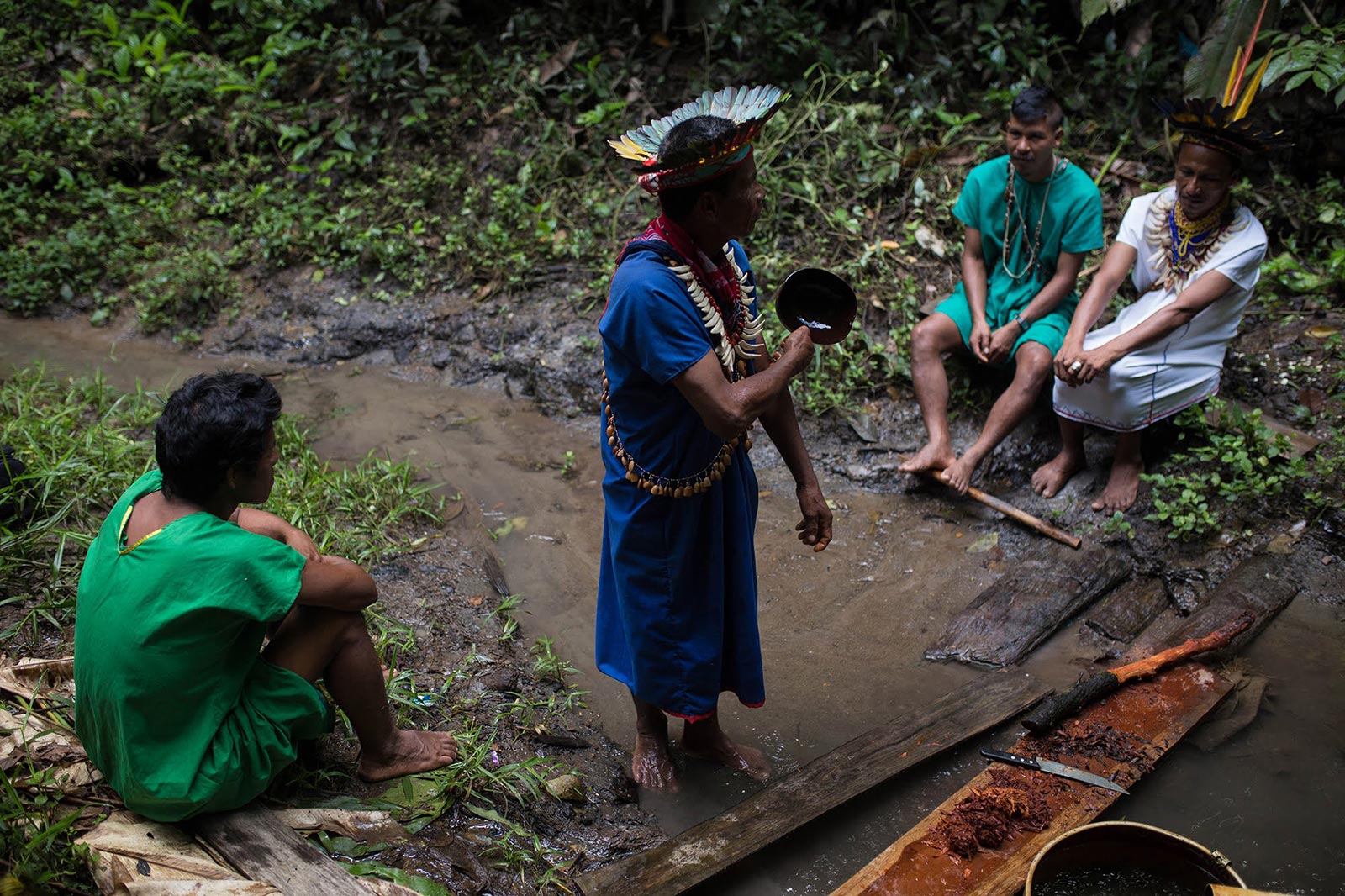
At the break of dawn, a Siona elder provides guidance and counsel to young adults as they share a bowl of yoco – a vine rich in caffeine and medicinal properties. The tradition goes as far back as memory itself, and is essential for interpreting dreams, planning daily activities, and receiving advice on acceptable behavior and etiquette within communal life
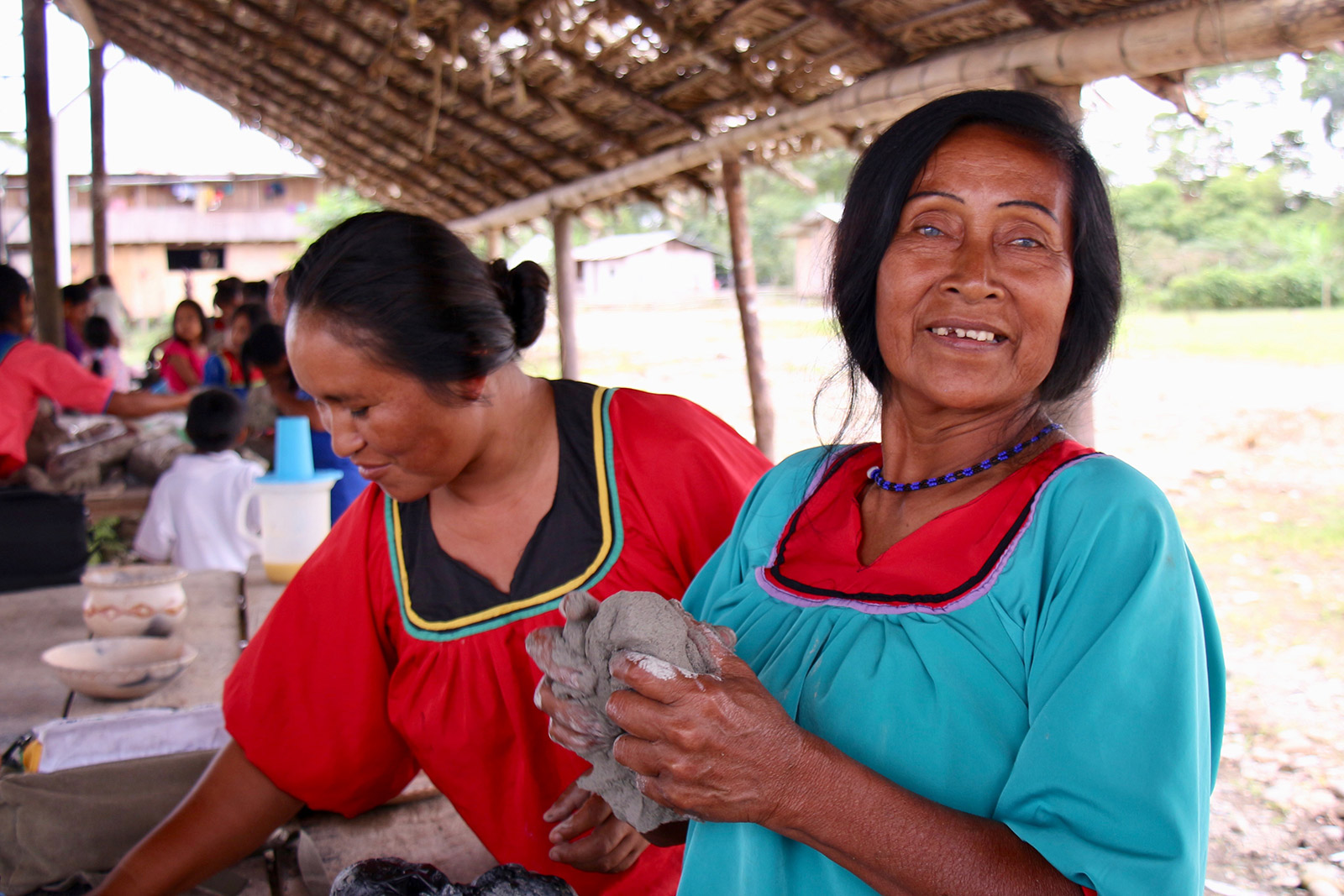
A Kofan grandmother teaches a group of youth the ancient skill of transforming a hunk of river clay into a delicately crafted, and ornately designed ceramic cook pot. Today’s crisis is a stark reminder to the indigenous people of the vital necessity of these traditions for self-sufficiency and autonomy from external markets

